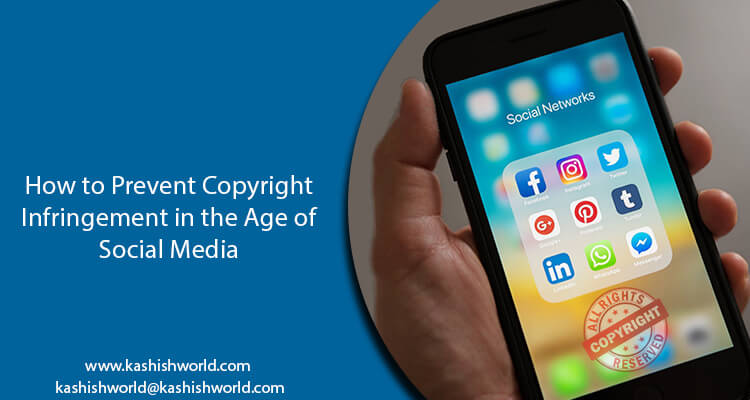
Social media platforms like Twitter, Facebook, and Instagram help brands and business owners across the globe to stay socially connected with their target audience and share user-generated content. This visually appealing content can include anything ranging from images and videos to written works and reports. Social media platforms allow for the sharing of different types of media on the Internet. In this particular scenario, social media, without any second thoughts, becomes a battlefield of Copyright Infringement. The content that businesses post on social media networks is generally for advertising and marketing purposes. However, while involving in the process of coming up with relevant, useful, and engaging content, businesses, at times, tend to ignore the possibility of being sued for using copyrighted material online. As a diligent business owner, you can always prevent copyright infringement lawsuits and content ownership issues by keeping a few tips in mind, which are as follows:
1. Always look forward to seeking permission before posting anything
It is indeed the most convenient and straightforward way of ensuring that the content you share is not infringing upon someone’s copyright. All that you require doing is contacting the owner of the said content and seeking permission for sharing the same on your social media account. It applies to photographs, texts, audio or visual material, and so on. There may be some circumstances where you will find it pretty arduous to trace the original copyright holder, especially in situations where you come across the content on platforms that usually re-share photos and stories from other sources. Now, what you can do is share the link, which, however, won’t offer much help to your business, as it links to the respective website and not yours. Furthermore, it is essential to keep in mind that some website owners and bloggers specify the maximum number of characters or words that you can copy without breaching their copyright.
2. Don’t believe that giving credits to the owner removes copyright infringement
It is undoubtedly an exceedingly common mistake that people generally end up making on both their business pages and social media accounts. What they do is they post photographs and audio or visual content and give credits to the owners by either mentioning their name or linking to their official social media account or website. It is a matter of fact that yes – crediting is a good and thoughtful thing to do; however, it doesn’t remove the liability. For instance, the copyright owners can still sue you for sharing their content, even if you credited them.
3. Don’t think of using watermarked stock photo previews
Sharing photos with a watermark on them is nothing less than being unprofessional in all aspects as you are publicly advertising and highlighting the fact that you didn’t pay for the respective images. Moreover, in this scenario, the stock photo website owners can also take action against you and your business once they find out the misuse of their Intellectual Property (IP).
4. Don’t encourage your followers to breach the copyright
While launching contests on social media platforms, it is imperative to be careful and make sure that you don’t incite copyright infringement in any manner. For instance, asking your fans and followers to record themselves voicing over some popular song or recreating photos, iconic news, and celebrity portraits represents severe cases of copyright violation.
5. Research well on the hashtags and taglines
Before you begin promoting a phrase or word as the tagline of your marketing campaign in hashtags, ensure that it is not any other person’s copyright or trademark. In the present digital era, there are some companies and celebrities holding copyrights over specific phrases. Hence, if you aren’t sure whether a particular phrase is free to use or not, don’t go ahead with using it. Last but not least, if you purchase a license corresponding to a specific piece of content, you must put in sincere efforts for understanding the limits of the rights you obtain by making this purchase. For instance, you may be allowed to play a song at an event party organized by your company, but this right may not always extend to sharing the recordings of the event on YouTube, especially when that particular song had come up.

